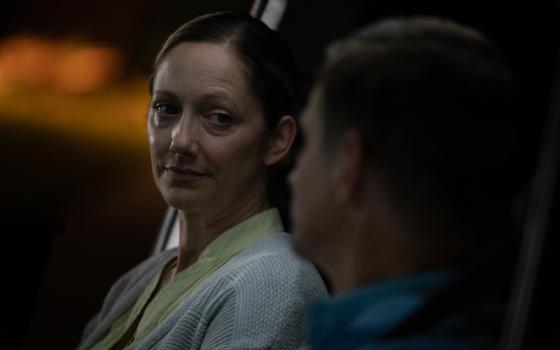I had the honor on Wednesday of having lunch with Jerzy and Irene Kluger. I met Jerzy Kluger at Auschwitz on Sunday during the visit of Benedict XVI. Now 84, Kluger is famous as the Jewish boyhood friend of Karol Wojtyla in Wadowice, Poland, and the two renewed their friendship when "Lolek," as friends called Wojtyla, became archbishop of Krakow and later Pope John Paul II.
On the subject of Benedict XVI's speech at Auschwitz, Kluger expressed the view that the pope had said virtually everything he could, and that it's important to understand the Polish context of the visit. Poles, he said, are sensitive that the undeniable decimation of Jews under the Nazis not obscure their own suffering. At Auschwitz, for example, 150,000 Poles perished along with one million Jews.
In that setting, he said, it would be difficult for the pope to discuss anti-Semitism without also commemorating Polish losses, and this perhaps would have distracted from the focus of his speech. Moreover, Kluger said, the mere fact of Benedict's presence in Auschwitz spoke volumes.
At the same time, Kluger, who lost his mother and sister in Auschwitz, said it would have been better had Benedict's reference to anti-Semitism during the Wednesday General Audience been included in the Sunday text.
Most of our lunch, however, had little to do with contemporary papal politics. Instead, the Klugers regaled me with anecdotes involving their good friend Karol Wojtyla. Kluger pulled out a photo album and showed me pictures of him and Wojtyla in grade school, again in high school, and in intimate moments spent in the papal apartment over the course of 26 years. The last photo ever taken of John Paul at his dining table, for example, is with the Klugers.
Kluger said that even as a young man, Wojtyla's promise was evident. He laughed that his grandmother, for example, whenever she became annoyed, would sometimes point to Wojtyla and ask: "Why can't you be more like him?"
Irene, an Irish Catholic, joked that she has been married four times -- all, however, to the same man. She and "Jurek," Kluger's Polish diminutive, met in Egypt during the Second World War, where she was a personal aide to a British Field Marshall and Kluger was a Polish soldier. They came together because both played tennis at a Cairo club. (Kluger was actually a star tennis player in Poland). Irene was 19 and Jerzy 21 when they married for the first time in a civil ceremony; her Irish-Catholic parents had reservations about the match. Later, a rabbi performed a Jewish ceremony, and eventually a priest blessed the union. In those days, however, a mixed marriage could not be celebrated in church, but had to be held in the sacristy.
Later, after John Paul II became pope, he blessed their marriage again. He also celebrated a full wedding Mass for their daughter, in English, in the chapel of the papal apartment.
Kluger's friendship with Wojtyla was the subject of the 1998 book The Hidden Pope by Darcy O'Brien, and in microcosm it speaks volumes about the revolution John Paul II worked in Jewish/Catholic relations.
* * *
Pressed for immediate assessments, many observers initially judge the success or failure of papal trips by crowd size. Applying that standard, one would have to say Benedict did well in Poland. He drew 300,000 on a cold and rainy day in Warsaw, a half-million at Czestochowa, and more than a million for his final Mass at Blonia Park in Krakow.
While these were not quite the throngs that flocked to John Paul II, the crowds were nevertheless large and enthusiastic, and seemed to genuinely like the new pope.
Yet from a certain point of view, a pope drawing a big crowd in Poland is a bit like "dog bites man" … it would only be news if the opposite were the case.
Benedict's aim wasn't to demonstrate through crowd size that Catholicism is still alive in Poland, something that even five minutes in the country is enough to make clear. His deeper aspiration was to convince Poles to carry their Catholic heritage into the construction of the new Europe, to assume a leadership role in forging a Europe respectful of its Christian roots.
Whether the trip succeeded on that level cannot be assessed in any immediate fashion, and if the record of similar appeals from John Paul is any indication, the jury may be out for quite some time.
The e-mail address for John L. Allen Jr. is


